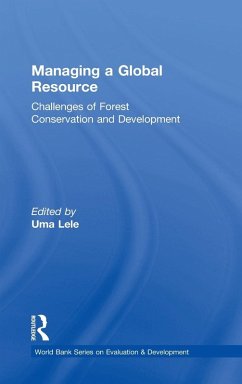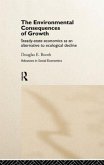The rapid loss of tropical forests, particularly in the developing world, has been a global concern since the late 1980s and has prompted a variety of international initiatives to save the forests. In 1991, the World Bank responded to global concerns and to criticism by nongovernmental organizations by forming a conservation-oriented forest strategy. Managing a Global Resource is an outgrowth of the independent evaluation conducted by the World Bank's Operations Evaluation Department and discusses how effectively that strategy was implemented. In this detailed investigation, Uma J. Lele explores why the loss of forests and biodiversity has been so rapid in some developing countries (Brazil, Indonesia, and Gameroon) and not in others (China, India, and Costa Rica). She assesses future prospects for conservation in these six countries by critically examining their policies, institutional arrangements, and emerging national and international instruments to conserve forests and biodiversity. Together these six countries account for 25 percent of the world's forest cover and 44 percent of the world's population. Managing a Global Resource presents case studies of the forest sectors of each country in the context of overall development policies, interest groups, and governance issues. Lele's investigation finds a fundamental divergence in forest-rich countries between the global objectives of conservation and the local objectives of development and private profit. In some forest-poor countries, in contrast, natural resource loss has led the countries on their own accord to adopt a variety of conservation-oriented policies and programs. Despite the greater congruence between the global andnational objectives in these forest-poor countries, competing demands on their resources and the constraints on their policies, institutions, and human capital make it difficult for them to affect forest and biodiversity conservation. This volume makes it clear that withou
Hinweis: Dieser Artikel kann nur an eine deutsche Lieferadresse ausgeliefert werden.
Hinweis: Dieser Artikel kann nur an eine deutsche Lieferadresse ausgeliefert werden.








